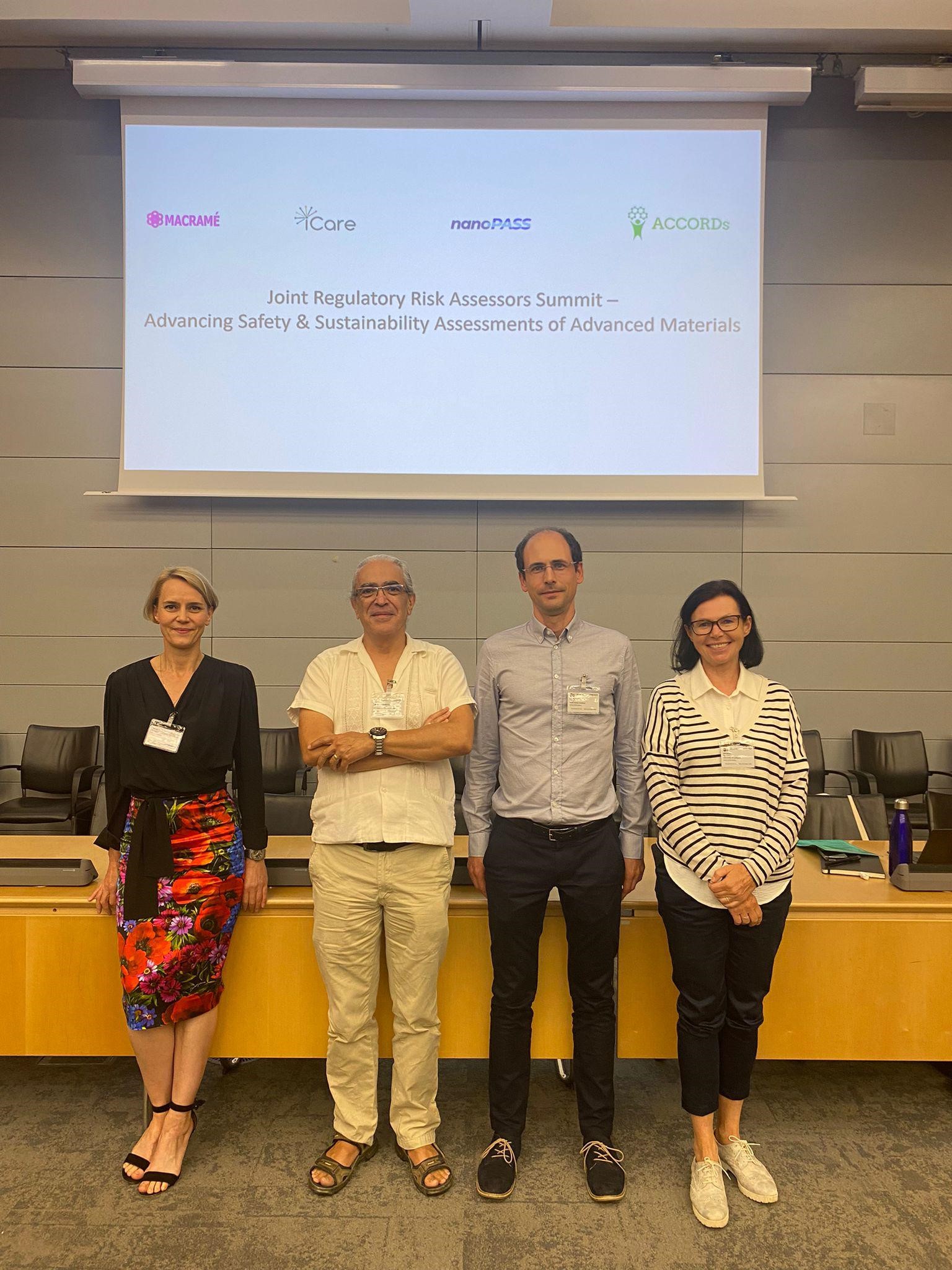Joint Regulatory Risk Assessors Summit in Paris: iCARE Partners Drive Progress in Advanced Materials Safety and Sustainability Assessments
The Joint Regulatory Risk Assessors Summit at OECD Conference Centre in Paris (19–20 June 2025) brought together nearly 100 participants from 23 countries to address challenges in safetyand sustainability assessments of advanced materials. Co-organised by EU Horizon Europe projects MACRAMÉ, iCARE, nanoPASS, and ACCORDs, the event strengthened dialogue between science and regulation, focusing on test method development, harmonisation, and uptake of New Approach Methodologies across the lifecycle of advanced materials.
Event Overview
The summit gathered diverse stakeholders including policy makers, regulators, industry representatives, academia, contract research organisations, and NGOs. Sessions covered stakeholder panels on regulatory testing challenges, advanced material characterisation in complex matrices, human health models for safety prediction, environmental fate and ecotoxicity testing, and industrial lifecycle testing approaches.
Key challenges identified included regulatory uncertainty and fragmentation, test method gaps requiring OECD Test Guideline updates, timeline misalignment between research projects and regulatory adoption cycles, limited laboratory capacity for new method uptake, lifecycleperspective requirements, SME scalability needs, and communication linking safety with innovation and competitiveness.
iCARE Contributions
iCARE partners demonstrated leadership in developing next-generation test systems and regulatory science through multiple presentations and posters:
- [Poster] Establishment of human-based in vitro models to evaluate neurotoxicity – GAIKER
- [Poster] HTS tests for toxicity assessment and their adaptation to nanomaterials – Institute of Bioorganic Chemistry
- [Poster] Extending the use of standardised in vitro ecotoxicity models to support neurotoxicity testing – GAIKER
- [Poster] Freshwater planarians as bioindicators for nanoparticles toxicity assessment – IIT, INL
- [Poster] Sampling Challenges in Real Industrial Settings: Lifecycle Insights from EV battery casings and ATEX Tanks – Avanzare
- [Presentation] Development and Application of In Vitro Models to Assess Neurotoxicity of Advanced Materials, the iCare approach, Ernesto Alfaro-Moreno (INL)
- [Presentation] C. elegans in Neuro-Nanosafety: A Translational Bridging Model and New Approach Methodology (NAM) Tool, Nivedita Chatterjee (INL)
- [Presentation] Relevance and applicability of alternative (eco)toxicity methods in industrial settings, Elise Morel (TEMASOL)
Key Outcomes and Future Directions
The summit highlighted the transformative potential of digital tools, FAIR data, and AI-based analyses while acknowledging validation and regulatory acceptance challenges. A critical barrier identified was the lack of sustained, strategically coordinated funding to bridge research, validation, and regulatory uptake.
Twelve informed recommendations were presented across key safety assessment areas, including physical-chemical characterisation, detection in biological matrices, multi-component material testing, fibre toxicity prediction, sample preparation, dosimetry control, exposure-based testing strategies, lifecycle release identification, environmental transformation effects, standardised lifecycle release testing, and safety information sharing.
The 3rd Joint Workshop on Harmonisation and Standardisation of Test Methods for Nanomaterials and Advanced Materials—continuing the NanoHarmony NANOMET journey—will take place 3-4 November 2025 (online). Registration details and agenda updates will be available on the iCARE website.
iCARE continues driving progress through international partnerships, knowledge sharing, and method development, working toward safer and more sustainable advanced materials in Europe and beyond.

